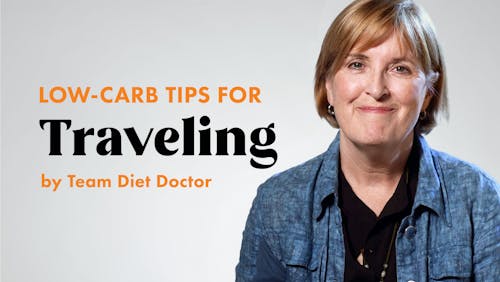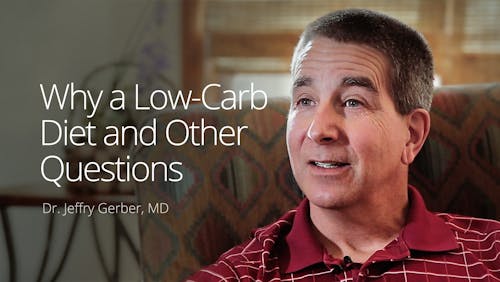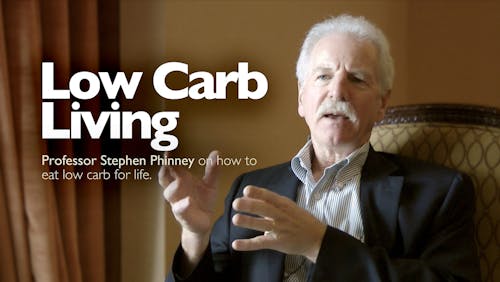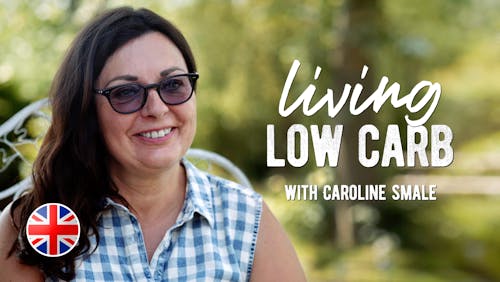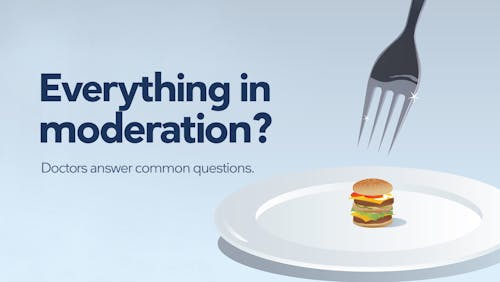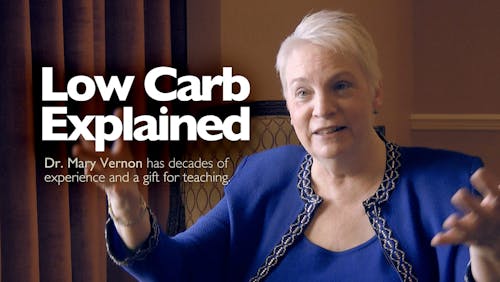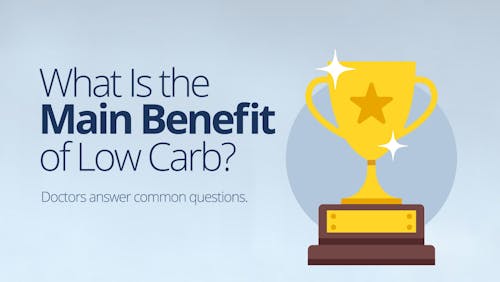Guide for low-carb dietitians
However, some dietetic associations and many registered dietitians have voiced negative views of carb-restricted diets, often criticizing them as being unbalanced, difficult to follow, and unsustainable.
As a registered dietitian and certified diabetes educator who has followed and recommended a low-carb lifestyle for more than eight years, I respectfully disagree. In fact, I feel that all dietitians should learn how to successfully work with patients and clients who are interested in using this approach for improving blood glucose control, losing weight, and achieving other health benefits.
First steps for practicing low carb as a registered dietitian
- Get to know the published literature. Understanding the evidence behind carbohydrate restriction will help you to help your patients. Setting a pubmed alert for terms including “low-carbohydrate diet” or “ketogenic diet” will keep you on top of the literature.
- Make sure you don’t forget about other dietary factors that can help you use low-carb with your patients. So don’t just limit yourself to low-carb reading – this will help you modify the diet based on the patient’s needs. For example, a hybrid of the Mediterranean and low-carb diets can help lower blood pressure or reduce cholesterol.
- Learn about therapeutic carbohydrate restriction by reading one or more of the following books: The Art and Science of Low Carbohydrate Living by Steve Phinney, MD, and Jeff Volek, PhD, RD; The Art and Science of Low Carbohydrate Performance by Steve Phinney, MD, and Jeff Volek, PhD, RD; Dr. Bernstein’s Diabetes Solution by Richard K. Bernstein, MD;Conquer Diabetes and Prediabetes: The Low-Carb Mediterranean Diet by Steve Parker, MD.2 You’ll be able to read these books with a critical eye if you also supplement your reading with a knowledge of the original scientific literature.
- Consider following a low-carb or keto diet yourself for at least a month, if you haven’t already done so.
- Carry liability insurance before you begin counseling patients or coaching clients. Although I’m not aware of any dietitians in the US who have needed coverage for claims made against them for practicing low carb, having liability insurance is always recommended when providing dietary advice to individuals, low-carb or not!
Here is a list of US companies that offer liability insurance for registered dietitians.
Recommending low-carb diets in your own practice vs. a medical office
Working in private practice allows you to make low-carb recommendations based on your own clinical judgment and experience as well as your patients’ goals and dietary preferences. However, you may find it difficult to go out on your own right away. I recommend easing into private practice while continuing to learn as much as possible about carb restriction.
You may be able to practice low carb with patients in a medical office setting if the doctors or other clinicians you work with support a low-carb approach. For instance, registered dietitian Valerie Goldstein provided exclusively low-carb guidance to all patients while working with Dr. Atkins in the early 2000’s. Today, I hear from a growing number of physicians and specialists who are eager to have their patients work with experienced low-carb dietitians. And Virta Health — an organization committed to reversing diabetes via carb restriction under medical supervision with ongoing support — has hired several dietitians as part of its growing clinical team.
On the other hand, if you’re employed by general practitioners or specialists who aren’t very supportive of low-carb diets, it’s best to introduce the idea gradually by providing recent, high-quality studies supporting their benefits. You could even ask whether you could do a short presentation or seminar for your team. Very often, people will not have read the evidence and may not have time to do so. If you have a good handle on the studies, a short 15-minute presentation can be effective at showing more skeptical colleagues the merits of this approach.
Below you’ll find links to the most rigorous research supporting low-carb and very-low-carb, ketogenic diets to date.
Top 10 studies supporting low carb and keto diets
-
- Diabetes, Obesity & Metabolism 2019: An evidence‐based approach to developing low‐carbohydrate diets for type 2 diabetes management: a systematic review of interventions and methods [strong evidence]
- Nutrition Reviews 2019: Effects of carbohydrate-restricted diets on low-density lipoprotein cholesterol levels in overweight and obese adults: a systematic review and meta-analysis [strong evidence]
- Diabetes Research and Clinical Practice 2018: Effect of dietary carbohydrate restriction on glycemic control in adults with diabetes: A systematic review and meta-analysis [strong evidence]
- European Journal of Clinical Nutrition 2017: The interpretation and effect of a low-carbohydrate diet in the management of type 2 diabetes: a systematic review and meta-analysis of randomised controlled trials [strong evidence]
- BMJ Open Diabetes Research and Care 2017: Systematic review and meta-analysis of dietary carbohydrate restriction in patients with type 2 diabetes [strong evidence]
- The British Journal of Nutrition 2016: Effects of low-carbohydrate diets v. low-fat diets on body weight and cardiovascular risk factors: a meta-analysis of randomised controlled trials [strong evidence]
- PLoS One 2015: Dietary intervention for overweight and obese adults: Comparison of low-carbohydrate and low-fat diets. A meta-analysis [strong evidence]
- Obesity Reviews 2015: Do ketogenic diets really suppress appetite? A systematic review and meta-analysis [strong evidence]
- The British Journal of Nutrition 2013:Very-low-carbohydrate ketogenic diet v. low-fat diet for long-term weight loss: a meta-analysis of randomised controlled trials [strong evidence]
- Obesity Reviews 2012: Systematic review and meta-analysis of clinical trials of the effects of low carbohydrate diets on cardiovascular risk factors [strong evidence]
Also, consider referring doctors and other healthcare practitioners (including dietitians) to our detailed guide for doctors skeptical of low carb.
The American Diabetes Association’s journey to embracing a low-carb option
Not so long ago, the American Diabetes Association (ADA) discouraged even modest carb restriction. For instance, their 2005 Standards of Medical Care in Diabetes Medical Nutrition Therapy (MNT) section stated:
“Low carbohydrate diets are not recommended in the management of diabetes. Although dietary carbohydrate is the major contributor to postprandial glucose concentration, it is an important source of energy, water-soluble vitamins and minerals, and fiber. In addition, because the brain and central nervous system have an absolute requirement for glucose as an energy source, restricting total carbohydrate to less than 130 g/day is not recommended.” 3
But back in 2011, based on the results of several studies, the ADA included the following statement in their Standards of Medical Care guidelines:
“For weight loss, either low-carbohydrate, low-fat calorie-restricted, or Mediterranean diets may be effective in the short term (up to 2 years).”4
Then in 2012, at the request of editors at the ADA journal Diabetes Spectrum, I wrote an article about carbohydrate restriction for people with diabetes and prediabetes.5 It included a sample menu containing 80 grams of net carbs and 55% of calories from fat – definitely well outside of standard recommendations.
A year later, the ADA published a position paper on nutritional management of diabetes authored by several registered dietitians and other diabetes specialists, which included the following statements:
- “Evidence is inconclusive for an ideal amount of carbohydrate intake for people with diabetes. Therefore, collaborative goals should be developed with the individual with diabetes.”
- “A variety of eating patterns have been shown modestly effective in managing diabetes, including Mediterranean-style, Dietary Approaches to Stop Hypertension (DASH) style, plant-based (vegan or vegetarian), lower-fat, and lower-carbohydrate patterns.”
- “A variety of eating patterns are acceptable for the management of diabetes. Personal preferences and metabolic goals should be considered when recommending one eating pattern over another.”6
At the time this paper was published, I believed these statements allowed dietitians to use critical thinking and clinical judgment when making dietary recommendations for those with diabetes and prediabetes — the great majority of whom would benefit from a carb-restricted diet.
So I was elated when the ADA went even further in their 2019 consensus report (again authored by diabetes specialists that included several RDs) endorsing carb restriction as not only acceptable but the most effective option for controlling blood sugar in people with diabetes:
- “Research indicates that low-carbohydrate eating plans may result in improved glycemia and have the potential to reduce antihyperglycemic medications for individuals with type 2 diabetes.”
- “Reducing overall carbohydrate intake for individuals with diabetes has demonstrated the most evidence for improving glycemia and may be applied in a variety of eating patterns that meet individual needs and preferences.”
- Although the recommended dietary allowance for carbohydrate for adults without diabetes is 130 g/day and is determined in part by the brain’s requirement for glucose, this energy requirement can be fulfilled by the body’s metabolic processes, which include glycogenolysis, gluconeogenesis (via metabolism of the glycerol component of fat or gluconeogenic amino acids in protein), and/or ketogenesis in the setting of very low dietary carbohydrate intake.“7
I realize how disheartening it can be to read negative reviews of low-carb and keto diets from fellow RDs. However, the ADA’s road to endorsing carb restriction shows us that although it can take time for dietitians and health organizations to change their position regarding a long-standing nutrition belief, it does happen!
Potential consequences of practicing low carb
One thing to be aware of is the potential backlash by dietitians who are biased against low-carb diets. A few dietitians have privately told me that they have been reprimanded or lost their jobs as a result of practicing carb restriction with patients.
The most notable case involves Jennifer Elliott from New South Wales, Australia. After working as a dietitian for more than 30 years, Jennifer received notice of a formal complaint from another dietitian who took issue with her recommending low-carb diets to patients with diabetes and metabolic syndrome. She was eventually deregistered by the Dietitians Association of Australia, which led to her loss of employment. You can read more about Jennifer’s story here.
To my knowledge, there aren’t any other cases of dietitians having lost their credentials for practicing low carb outside of Australia.
Your clinical practice should always be underpinned by an evidence-based rationale. Now that we have clear guidance from reputable organizations including the American Diabetes Association and Diabetes UK (both of whom include RDs in their guideline development teams) for the use of low-carbohydrate diets in the management of type 2 diabetes, this is very helpful.
Furthermore, there is clinical trial evidence supporting a low-carb approach as safe, effective, and appropriate for conditions including obesity and metabolic syndrome. Knowledge of the literature can help you in areas where there are no clinical guidelines. However, there may not be clear dietetic guidelines or evidence for a particular aspect of a patient’s condition – such as stage 3 renal disease or familial hypercholesterolemia.
In these cases, be aware of what the relevant medical authority recommends on the subject and be sure you have considered and can defend your approach with clinical scientific evidence. This means both the benefits and the risks.
For example, in some patients, you may see a marked rise in LDL-cholesterol with low-carb. The dietary approach you use to manage this should be justified based on published evidence. If you cannot defend your approach using published clinical studies, then to be safe, make sure you know what the consensus is from the relevant medical authorities. This is important for your own protection.
Make sure to include a disclaimer about your practice
Although including a disclaimer on your business website won’t completely protect you against complaints, it’s best to make very clear that your own dietary recommendations differ from those of many major health organizations.
Here is the disclaimer that I use on my own website, which can be tailored as needed for your country of residence:
“Although I am a health care professional, I am not a physician and cannot diagnose or treat diabetes or other conditions; I can only provide nutritional advice and guidance. Some of the nutrition advice I provide is not universally accepted as evidence-based practice and is neither sponsored, approved, recommended nor endorsed by the United States Department of Agriculture (USDA), FDA (Food and Drug Administration), NIH (National Institutes of Health), American Heart Association (AHA), or Academy of Nutrition and Dietetics (AND). Always consult with your physician prior to adopting a low-carbohydrate diet or making other dietary changes.”
Low-carb dietitians: a growing breed
I firmly believe that as dietitians, we can help people become healthier by providing individualized recommendations based on a patient’s clinical needs and personal preferences. This includes the use of nutrient-dense, minimally processed low-carb foods whether they are animal or plant-based. Fortunately, the number of dietitians who practice low carb – or are open to doing so – is growing at a steady pace.
However, we must be diplomatic and respectful when engaging with colleagues who don’t yet share our views, for the sake of remaining professional as well as protecting ourselves from being targeted. As experimental and anecdotal evidence supporting carb restriction continues to mount, I’m confident that more and more RDs will recognize the importance of offering this approach as an option to patients and clients.
Email me at franziska@lowcarbdietitian.com if you are a dietitian interested in joining a private Facebook group of international low-carb dietitians.
Franziska’s story

Top posts by Franziska Spritzler
More
Low-carb basics
Guide for low-carb dietitians - the evidence
This guide is written by Franziska Spritzler, RD and was last updated on June 17, 2022. It was medically reviewed by Nicola Guess, RD MPH PhD on December 23, 2021.
The guide contains scientific references. You can find these in the notes throughout the text, and click the links to read the peer-reviewed scientific papers. When appropriate we include a grading of the strength of the evidence, with a link to our policy on this. Our evidence-based guides are updated at least once per year to reflect and reference the latest science on the topic.
All our evidence-based health guides are written or reviewed by medical doctors who are experts on the topic. To stay unbiased we show no ads, sell no physical products, and take no money from the industry. We're fully funded by the people, via an optional membership. Most information at Diet Doctor is free forever.
Read more about our policies and work with evidence-based guides, nutritional controversies, our editorial team, and our medical review board.
Should you find any inaccuracy in this guide, please email andreas@dietdoctor.com.
Here are just a few examples:
Diabetology & Metabolic Syndrome 2012: Low-carbohydrate diet in type 1 diabetes, long-term improvement and adherence: a clinical audit [non-controlled study; weak evidence]
Practical Diabetes 2014: Low carbohydrate diet to achieve weight loss and improve HbA1c in type 2 diabetes and pre‐diabetes: experience from one general practice [non-controlled study; weak evidence]
Frontiers in Endocrinology 2019: Long-term effects of a novel continuous remote care intervention including nutritional ketosis for the management of type 2 diabetes: a 2-year non-randomized clinical trial [non-controlled study; weak evidence] ↩
Diet Doctor will not benefit from your purchases. We do not show ads, use any affiliate links, sell products or take money from industry. Instead we’re funded by the people, via our optional membership. Learn more ↩
Diabetes Care 2005: Standards of medical care in diabetes [overview article; ungraded] ↩
Diabetes Care 2011: Standards of medical care in diabetes-2011 [overview article; ungraded] ↩
Diabetes Spectrum 2012: A low-carbohydrate, whole-foods approach to managing diabetes and prediabetes [overview article; ungraded] ↩
Diabetes Care 2013: Nutrition therapy recommendations for the management of adults with diabetes [overview article; ungraded] ↩
Diabetes Care 2019: Nutrition therapy for adults with diabetes or prediabetes: a consensus report [overview article; ungraded]
You can read more in our guide Food for thought: Does the brain need carbs?
↩






